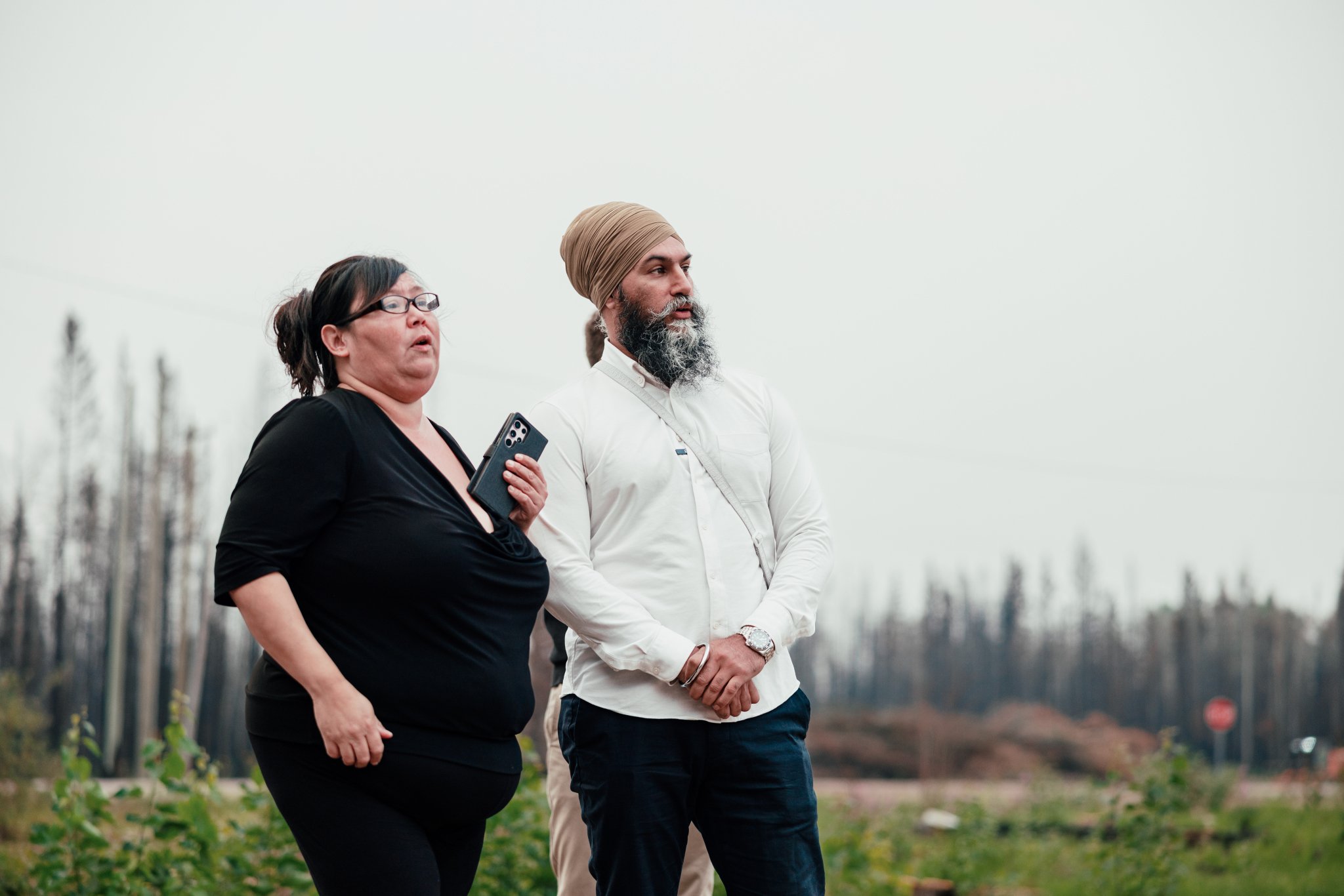For the second time this year, K’atl’odeeche First Nation in the Northwest Territories was part of the evacuation alert following an out-of-control wildfire fuelled by strong winds and dry conditions over the weekend.
Following an evacuation order in May, the K’atl’odeeche spent weeks away from their homes. K’atl’odeeche community members returned to find their band office burned to the ground and their community damaged.
Those emotions were present as community leadership alerted residents of another evacuation notice.
“I’m sorry to say this, but we are now again on an evacuation notice for K’atl’odeeche First Nation,” Chief April Martel said in a video posted to the community’s Facebook page, her voice cracking.
Only three weeks ago, Canada’s National Observer spoke with federal NDP Leader Jagmeet Singh, who was in the community to give a press conference on the riverbed of the Hay River. In his conversations with community members, Singh was told the water level has never been so low in recent memory.
Greenhouse gases trap heat around the planet like a warm blanket. The more greenhouse gases we release into the atmosphere, the thicker that blanket gets, the hotter the planet grows and the more the climate changes. Burning fossil fuels is one of the main ways humans add greenhouse gases to the atmosphere and drive climate change, which leads to hotter temperatures and creates conditions that help spark wildfires, like drought. Climate change also makes weather patterns more unpredictable, leading to an increase in extreme weather events.
![]()


